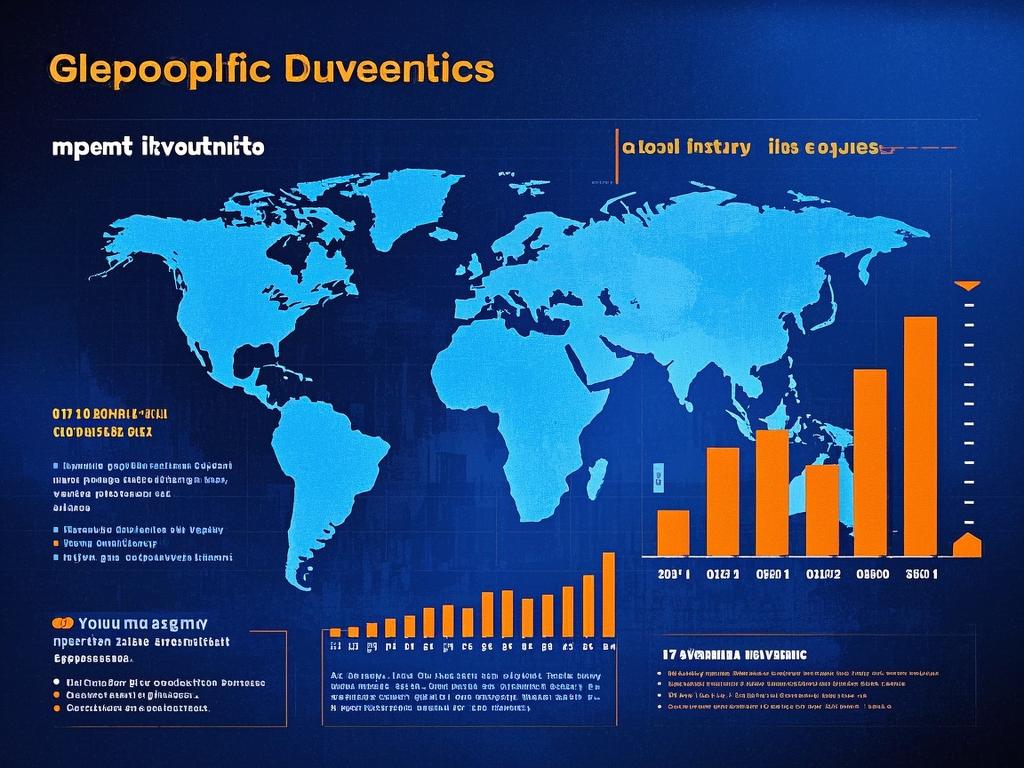
# The Impact of Geopolitics on Global Investments
Geopolitics, that ever - lurking shadow in the realm of global finance, has been making waves like never before, sending shockwaves through the intricate web of global investments. In today's hyper - connected world, where economies are more intertwined than a plate of spaghetti at a family reunion, geopolitical events can turn the investment landscape on its head faster than you can say "irrational exuberance."
Let's start by looking at some hard - hitting data. According to a recent report by a leading financial research firm, geopolitical tensions have led to a[n] **approximate 15%** drop in cross - border investment in certain regions over the past year. That's no small potatoes! It's like losing a significant chunk of your investment portfolio just because of the political rumblings in far - off lands.
Take, for example, the ongoing trade disputes between major economies. The tariffs slapped on each other's goods are not just about protecting domestic industries; they're a geopolitical chess game that has serious implications for investors. When a country raises tariffs on imported steel, it's not just the steel manufacturers who feel the pinch. The downstream industries that rely on steel, such as automotive and construction, see their costs skyrocket. This, in turn, affects their profitability and makes them less attractive to investors. Suddenly, those shiny stock prices start to look a bit duller, and the allure of high - yield bonds in these sectors fades faster than a summer tan in winter.
Historical parallels are aplenty when it comes to the impact of geopolitics on investments. Remember the Cold War? The political divide between the East and the West led to a[n] **polarization** of investment flows. Capital was funneled into either the communist - bloc countries or the capitalist - led Western nations, depending on one's political allegiance. Investments were often used as a tool of political influence, with countries pouring resources into strategic industries to gain an edge in the global power struggle. Fast forward to today, and we still see similar patterns emerging, although in a more subtle yet equally impactful way.
In the modern era, geopolitical hotspots like the Middle East have a profound impact on global oil prices, which are the lifeblood of many industries. A[n] **unexpected upheaval** in a major oil - producing country can send prices soaring, causing chaos in energy - intensive sectors. Airlines, for instance, are hit hard as fuel costs spike. This not only affects their bottom line but also makes their stocks a risky bet for investors. It's like trying to navigate a rollercoaster without knowing when the next big drop is coming.
Now, let's talk about the role of political stability in attracting investments. Countries with a[n] **rock - solid** political environment are like magnets for capital. Investors love predictability, and a stable government means fewer surprises. Take Singapore, for example. It has consistently ranked high in global indices for ease of doing business and political stability. As a result, it has attracted a[n] **astronomical** amount of foreign direct investment over the years. In contrast, countries plagued by political unrest, corruption scandals, or frequent policy reversals are like investment no - go zones. Who wants to pour their hard - earned money into a place where the rules keep changing faster than a chameleon's colors?
But it's not all doom and gloom for investors in the face of geopolitical challenges. There are opportunities hidden in these geopolitical storms. Savvy investors can spot the sectors that are likely to benefit from geopolitical shifts. For example, as the world moves towards a more sustainable future due to environmental concerns (a geopolitical trend in itself), the clean energy sector is booming. Investments in solar, wind, and other renewable energy sources are skyrocketing. It's like finding a goldmine in the middle of a political minefield.
However, predicting these opportunities is no easy feat. Geopolitical landscapes are as fluid as mercury. One day, a country might be open to foreign investment, and the next, it could be building walls (both literal and metaphorical) around its economy. It's like trying to catch a greased pig; just when you think you've got it, it slips through your fingers.
In conclusion, geopolitics is an omnipresent force that can't be ignored in the world of global investments. It has the power to make or break investment portfolios, creating both risks and opportunities. As investors, we need to keep a close eye on the geopolitical tea leaves, analyze the trends, and be ready to adapt our strategies at a moment's notice. After all, in this wild ride of global investments, the only constant is change, and geopolitics is the conductor pulling the levers. So, are you ready to ride the geopolitical investment rollercoaster? Buckle up, because it's going to be one heck of a journey!

